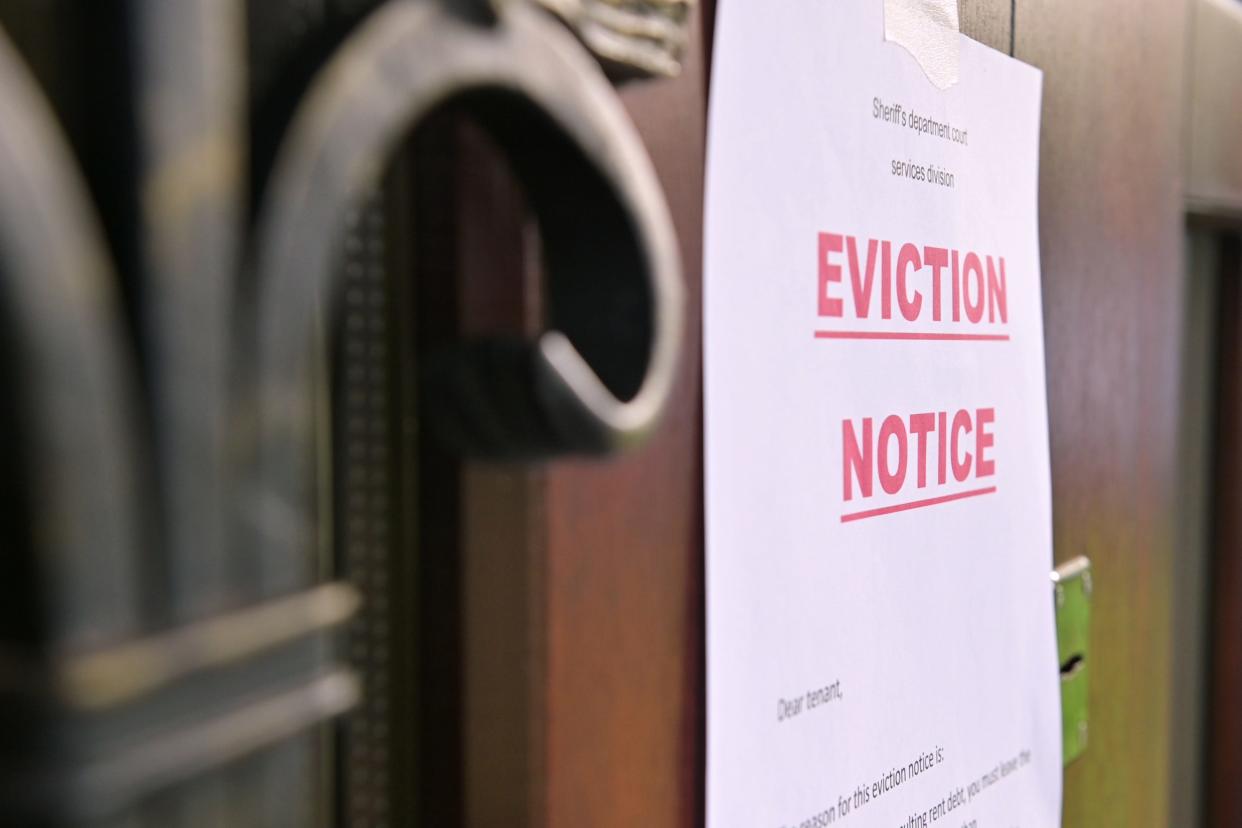Arizona's new record sealing law shouldn’t stop us from tracking evictions

Last month, Maricopa County Justice Courts released their eviction counts for July, shocking housing advocates across the state. The county recorded a whopping 6,405 eviction filings, more than at any point since 2008 and a 65% increase since April.
This month’s disclosure is even worse: 6,574 eviction filings for August, or nearly 220 per day.
Housing advocates sprang into action, analyzing the filing data to understand where the eviction filings are occurring, who is impacted and how to best deploy rental assistance before an eviction notice turns into the loss of a home. Keeping people housed, notably amid waning rental assistance and some of the hottest temperatures on record, can be a matter of life or death.
But this sort of real-time analysis and intervention may become much more difficult going forward, after Arizona's eviction record sealing law went into effect this week.
New law could delay crucial information
House Bill 2485, signed by Gov. Doug Ducey, is intended to protect tenants by sealing records of evictions that are dismissed or decided in favor of the tenant.
Eviction filing data is regularly sold to tenant screening companies, who repackage it for landlords to use in making rental decisions. That means a “Scarlet E” on a tenant screening report is enough to threaten a tenant’s ability to find housing for years to come, even if a prior eviction filing is ultimately dismissed.
Indeed, of the 80,000 evictions filed each year across the state, the advocacy organization Wildfire found that 30% are ultimately dismissed, meaning that this law could protect tens of thousands of families each year.
What will help? Many Arizona wages are too low to make the rent
But if the law isn’t implemented carefully, it could threaten access to the very data that legal aid organizations, rent assistance providers and others in the housing community have come to rely on in their everyday work.
Can we protect tenants and still get data?
So, what happens when the same data that has the potential to harm a tenant’s future housing options is also critical to efforts to keep people safely housed? Arizona public officials are already weighing how to honor HB 2485’s intent of protecting tenants while preserving access to that data for the public benefit.
In an email, Scott Davis, the public information officer for the Maricopa County Justice Courts, grappled with how HB 2485 will impact the comprehensive eviction filing updates that he sends out each month to Arizona’s housing community. Practically speaking, he wrote, “a good number of cases may become sealed after the data is in the hands of researchers.”
This raises questions on whether Davis will need to delay data updates to comply with the law or whether records can be shared before they are sealed.
Fortunately, the law is written broadly enough to allow courts to honor the spirit of the law while continuing to provide insights about the growing eviction crisis.
For instance, nothing in the law prohibits Arizona court systems from sharing aggregate data, and it doesn’t seem like the Maricopa County Justice Courts plan to stop. Arizona could look to Connecticut’s proposed bill, which allows courts to release anonymous and aggregated data or information, so long as it is presented in a manner that protects the identity of defendants whose records are sealed.
Law may not fully protect the evicted, either
It’s not a perfect system, however. While it’s helpful for tracking trends and evaluating programs, aggregated data doesn’t allow for real-time interventions like reaching out to a tenant named in an eviction filing to offer legal assistance or support in applying to rental assistance or eviction diversion programs.
To address these needs, Arizona could look into providing access to sealed records for permissible purposes that are for the public benefit, and could update its case management systems to allow for differing levels of confidentiality.
It’s also important to note that HB 2485 doesn’t fully protect tenants from predatory screening companies because it only seals eviction records after a judgment is rendered – several weeks after the initial filing.
Because tenant screening companies pull court data in real-time, and rarely update it to reflect the outcome of the case, many eviction filings will still end up on a tenant’s record, even if they’re later sealed.
To get around this, Arizona could look to bar courts from selling or providing information related to sealed case records to tenant screening companies, as was proposed in Connecticut’s eviction sealing legislation.
Arizona can strike a better balance
Arizona courts won’t be the only ones grappling with how to implement this law. At least eight states have eviction record sealing laws and legislation is being considered in several other cities and states across the country.
As a recent report from Upturn notes, record sealing need not be a binary system in which records are completely open to the public or completely closed; the process can be adapted to maintain protection while allowing access to data for the public benefit.
Striking the balance between tenant protection and access to data is a challenge, but it’s a battle worth fighting.
Record sealing has the potential to protect the housing security of millions of families each year. So does access to real-time and high-quality eviction data.
One does not need to be at the expense of the other.
Yuliya Panfil is director of the Future of Land and Housing program at New America, which designs and advances evidence-based public policies. Sabiha Zainulbhai is a senior policy analyst at the Washington, D.C.-based think tank. Reach them at panfil@newamerica.org and zainulbhai@newamerica.org.
This article originally appeared on Arizona Republic: New record sealing law shouldn’t stop Arizona from tracking evictions

